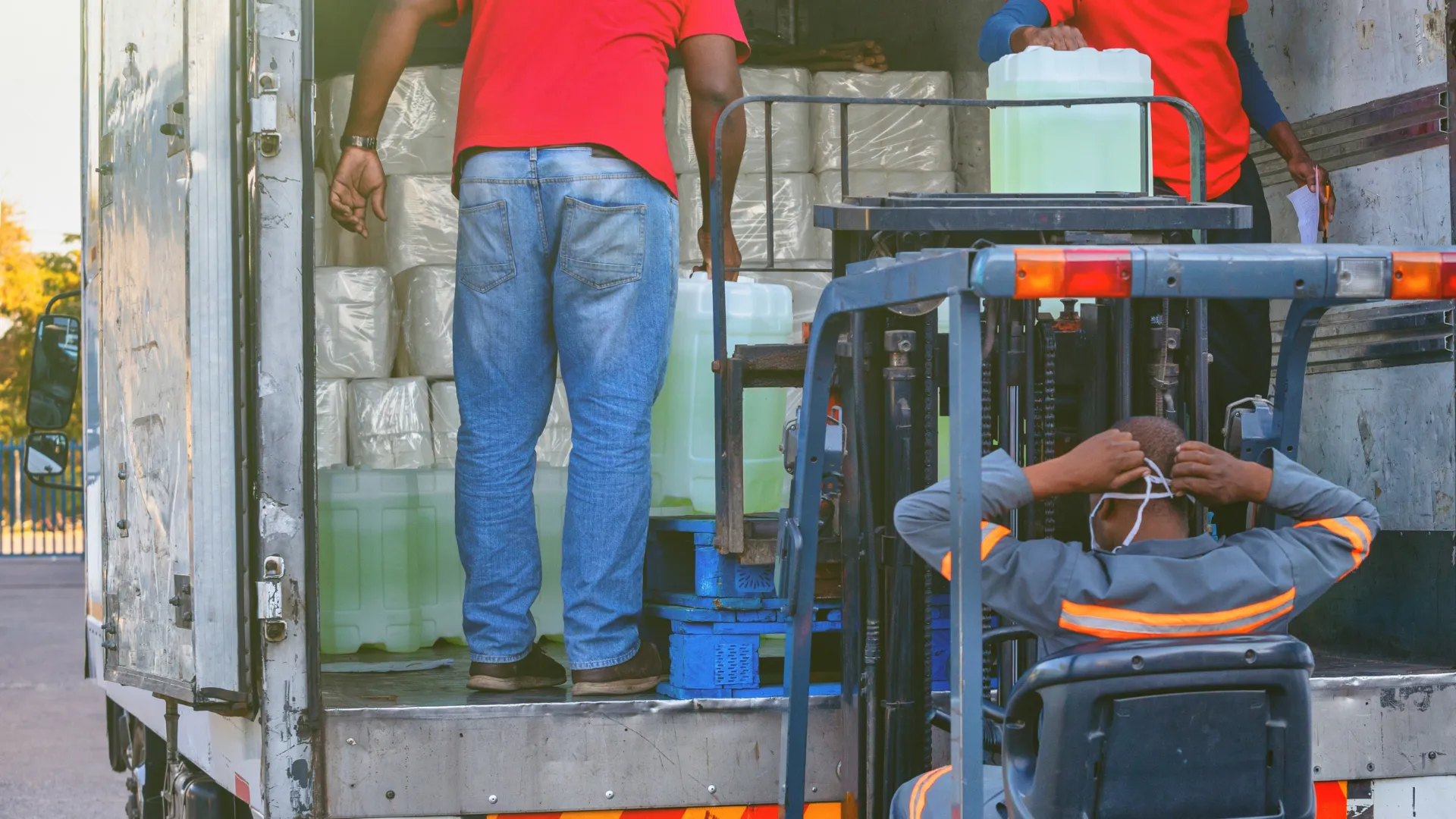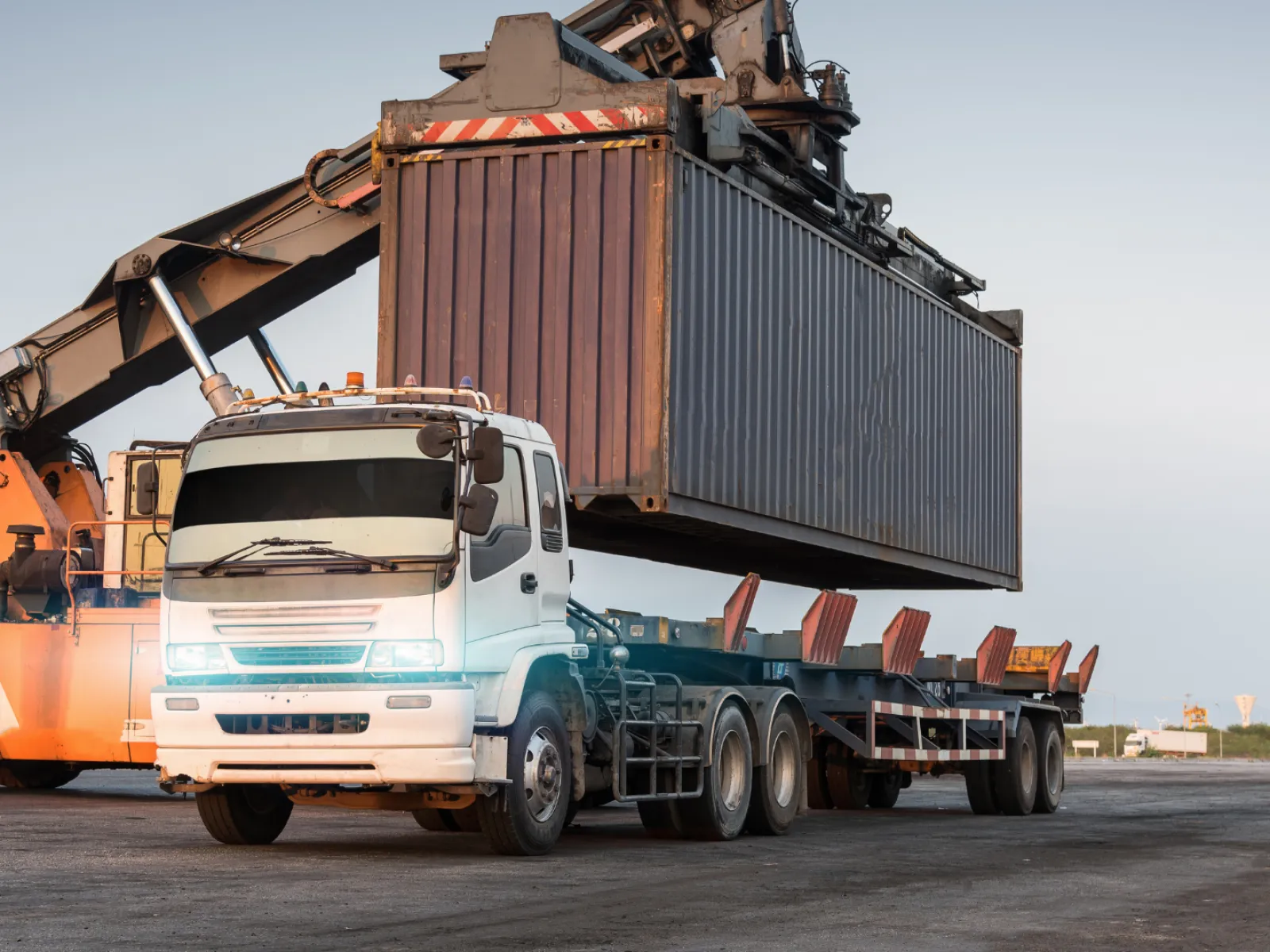
Container Transloading
Transferring Freight From One Container to Another

What is Container Transloading
Container transloading refers to transferring goods or cargo from one container to another. This process is commonly used when cargo arrives at a port or terminal in one type of container, such as a shipping container, but needs to be transported further using a different type of container, such as a truck trailer or rail car.
The process of container transloading typically involves unloading the cargo from the original container, inspecting it for damage or other issues, and then reloading it into the new container. This process can be complex and time-consuming, requiring specialized equipment and skilled workers to ensure that the cargo is transferred safely and efficiently.
Container transloading can be an important part of the logistics chain for many businesses, particularly those that rely on international trade or transport goods over long distances. By allowing cargo to be transported more flexibly and efficiently, container transloading can help businesses save time and money while ensuring that their goods arrive at their final destination safely and on time.
- Reduced warehousing costs: By minimizing or eliminating the need for warehouse storage, cross docking significantly lowers storage and inventory costs.
- Faster delivery times: With products quickly moving from the inbound to the outbound dock, delivery times are shortened and customers receive their orders more rapidly.
- Improved efficiency: By simplifying the supply chain, cross docking reduces the number of touchpoints, resulting in a more efficient and streamlined logistics process.
- Decreased risk of product damage: With fewer touchpoints and less handling, the risk of product damage is reduced, ensuring a higher-quality experience for the end customer.
- Environmental benefits: Reduced storage times and a more efficient supply chain can contribute to lower energy consumption and reduced carbon emissions.
Container Transloading: Key Advantages
1. Flexible Across Modes
2. Lower Transportation Costs
3. Streamlined Supply Chains
Bottom Line
Container Transloading with RS Group
If you have containers of goods that need to be moved from one container to another, we can help streamline the process and make it more efficient.
Our extensive network of transportation providers allows us to find the most cost-effective and reliable transportation options for your cargo. Whether you need to transport your goods by truck, rail, or ocean, we can connect you with the right carrier to meet your needs.
We understand that container transloading can be a complex process, which is why we have a team of experienced professionals to guide you every step of the way. Our team has years of experience in container transloading and can ensure that your cargo is transferred safely and efficiently. We will help you navigate the complexities of the process and ensure that your cargo is delivered on time and in the right condition.
In addition to our container transloading services, we also offer a wide range of other freight brokerage services, including freight forwarding, warehousing, and TSA-known brokerage. We can provide you with a complete end-to-end logistics solution that meets your unique needs and budget.
What Our Customers Have To Say
Transloading FAQs
Q
What is Container Transloading?
Container Transloading is the process of transferring goods from one container to another. It involves the unloading of goods from a container, and then reloading them into another container for transportation.
Q
Who can benefit from Container Transloading?
Any business that imports or exports goods can benefit from Container Transloading. It is particularly useful for companies that need to transport smaller shipments of goods, as it enables them to consolidate their shipments into larger containers.
Q
Why is Container Transloading important?
Container Transloading is important because it allows for the efficient transportation of goods. It enables the consolidation of smaller shipments into larger containers, which reduces transportation costs. Additionally, it allows for the separation of goods that require different handling or storage conditions
Q
What types of goods can be transloaded?
Almost any type of goods can be transloaded. This includes dry goods, refrigerated goods, hazardous materials, and oversized cargo.